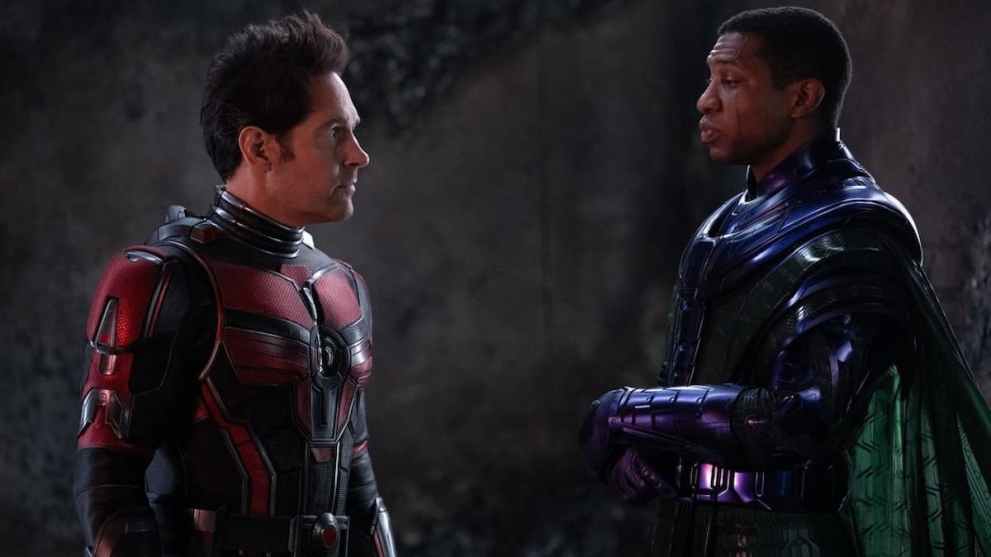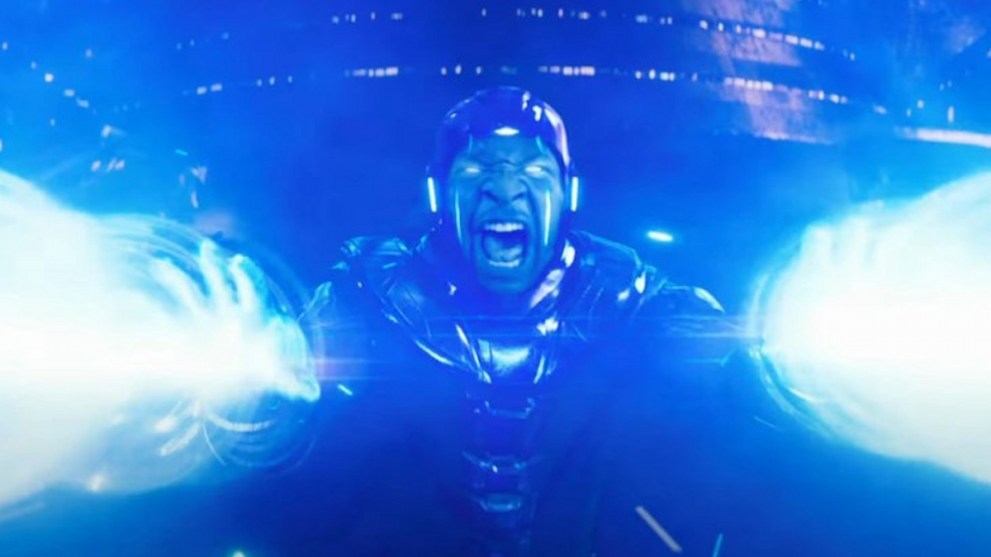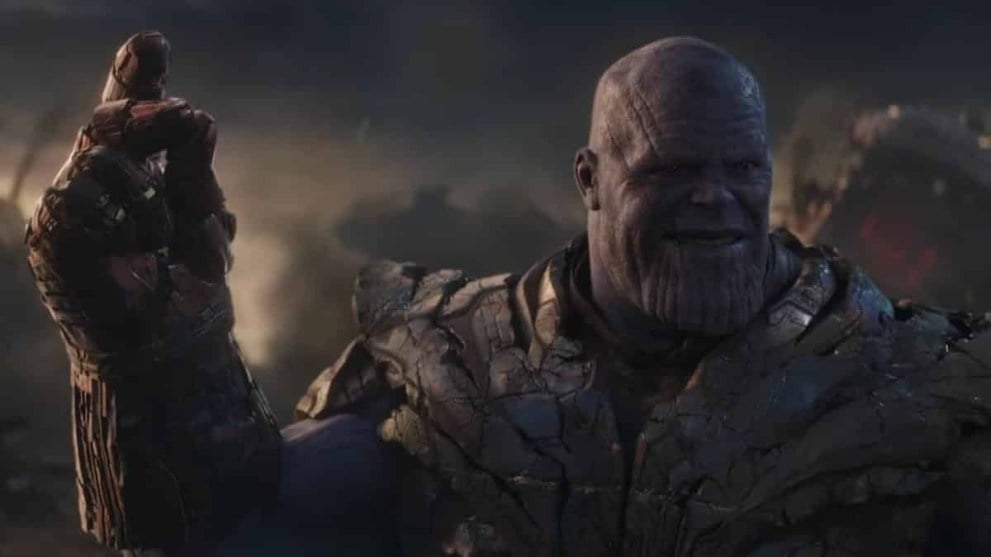**Spoilers for Ant-Man and the Wasp: Quantumania contained within.**
Ant-Man and the Wasp: Quantumania marks the long-awaited debut of Kang the Conqueror, who Kevin Feige and Marvel Studios have primed as the next big bad for the Marvel Cinematic Universe and the driving force of the Multiverse Saga. In the months and weeks leading up to Ant-Man and the Wasp: Quantumania, it was heavily teased that Kang would leave a mark on the MCU and fill the great big gaping hole that was left by the demise of Thanos in the finale of Avengers: Endgame. So is Kang worthy of the title of Thanos’ successor? As things currently stand, not quite.
It goes without saying that Quantumania is a low point for Marvel and an even worse start for phase five. The movie struggles with lazy direction, limited creativity, phoned-in performances, and a weak story that offers no stakes and minimal consequences. The one shining bright spot of the movie is Jonathan Majors’ performance as Kang. The character has some major flaws and is subject to some baffling creative decisions, but there is little doubt that Majors is bringing his A-game for this role.
Majors portrays Kang with a subdued sense of menace which is contrasted by his soft-spoken and eloquent demeanor. He truly offers a sense of depth and range to the character and presents different layers to what could have very easily resulted in a one-dimensional mustache-twirling antagonist. Kang is introduced as a master manipulator and strategist that is able to bend those around him to his whim. His years of conquest are best conveyed through his tactical mind but also his brutal taste for violence.

Kang is clearly intelligent and knows how to get what he wants, but what makes the villain truly scary is his remorseless path of death and destruction. It’s another testament to Majors’ acting chops. When Kang puts down the rebellion from the inhabitants of the Quantum Realm, the calm and collected tactician becomes an unhinged and barbaric warlord. Majors portrays the conqueror with authentic aggression and rage as he viciously murders the rebels of the Quantum Realm. It’s the first time the viewers really get to see Kang in action, and you can truly feel the conqueror’s fury burn through the silver screen.
All of this is to say that Kang definitely deserves a spot as one of the strongest Marvel villains alongside the likes of Loki and Erik Kilmonger, but what holds him back from being the MCU’s next major threat is the inconsistent writing of his character. A lot of it comes down to Quantumania simply not being that great of a movie, and Kang suffers the most from it.
Marvel Studios want us to believe that Kang is going to truly shake up the MCU in a way that hasn’t been seen since the Infinity War snap, but Quantumania largely fumbles the character’s potential, which takes a sharp detour in the film’s final act.
After building up Kang as a master tactician, the conqueror behaves in the exact opposite way he’s been portrayed by crumbling under the pressure of the rebellion led by Giant-Man, as he resorts to the cliched desperate villain strategy of firing all of his weapons and missiles in the misguided hope that it will deliver results. Of course, it doesn’t, and Kang should know better. He’s also incredulous at the prospect of defeat by Ant-Man and refuses to accept it as a possibility before his demise.

Surely the master tactician and conqueror of entire timelines would have some sort of contingency in place and be prepared for any outcome? Kang’s defeat at the end of the movie highlights the biggest problem with the character at this stage which is a distinct lack of impact. The finale of Loki, the hype from Kevin Feige, and the entire first hour of Ant-Man and the Wasp: Quantumania all build up Kang as an unstoppable threat, but by the time the credits roll, he feels like another one-and-done antagonist.
Ultimately the character suffers from one of the biggest cardinal sins in filmmaking; excessive exposition. The golden rule in any film is to show, don’t tell. When you combine the spiel from Jonathan Majors at the end of Loki, and the entire first act of Quantumania, Kang has received roughly around 70 minutes of exposition to set up how scary a threat he is. His on-screen actions have yet to live up to the hype of everything we’ve been told about him, and as such, he doesn’t come off anywhere close to the threat Kevin Feige wants us to believe he is.
It’s a stark contrast to Thanos, who established himself as a threat to the Avengers within the first five minutes of Infinity War. The film opens with the two most powerful Avengers — Thor and the Hulk — absolutely flattened by the Mad Titan after he kills off supporting characters like Heimdall and Loki in a brutal fashion. The entirety of Infinity War largely sees Earth’s Mightiest Heroes pushed to breaking point and desperation as the Mad Titan remains ten steps ahead of them every step of the way.

Kang ultimately pales in comparison to Thanos so far and doesn’t have a single substantial kill to his name. The best films in the MCU are the ones that feature some degree of loss or sacrifice; Spider-Man No Way Home, Captain America: Civil War, and Thor: Ragnarok, all being prime examples. Ant-Man and the Wasp: Quantumania is about as by the numbers as it gets for the MCU. Kang taking out either Hank Pym, Janet Van Dyne, or even Scott Lang would have made for a better movie and established the Conqueror as a serious threat.
It’s also worth noting how elaborate the entire concept behind Kang is. The Council of Kangs is a fascinating concept, and it will allow Jonathan Majors to seriously show off his acting chops, but countless variants of the same character could come off as dangerously convoluted for the average moviegoer.
It’s still relatively early days for the Multiverse Saga; there are still two phases to get through before we arrive at The Kang Dynasty and the finale, Secret Wars. There’s every chance that Kang can prove he’s a force to be reckoned with in either of those movies or a project before then, but it feels like there’s a major uphill battle to overcome.
